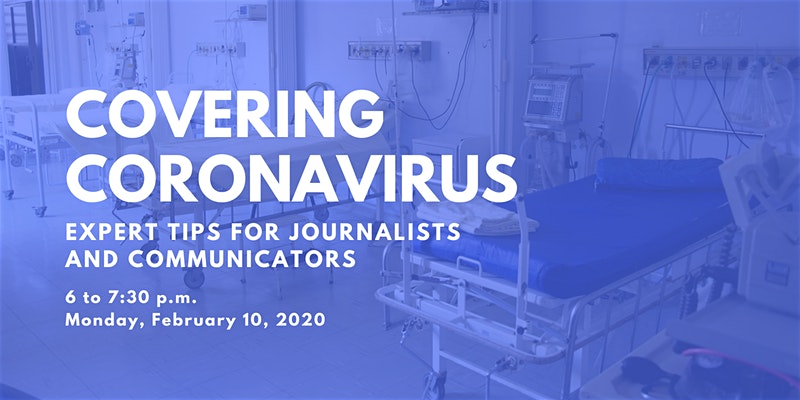Tonight: Expert panel discusses how to cover coronavirus
 Journalists with questions about how to responsibly and proactively cover the coronavirus epidemic are invited to attend an educational panel discussion at 6 p.m. Monday, Feb. 10, at the National Press Club, where they will hear from top health care journalists, risk communication experts and senior public health officials.
Journalists with questions about how to responsibly and proactively cover the coronavirus epidemic are invited to attend an educational panel discussion at 6 p.m. Monday, Feb. 10, at the National Press Club, where they will hear from top health care journalists, risk communication experts and senior public health officials.
The event, organized by the NPC Journalism Institute and the Club's Professional Development Team, will last until 7:30 p.m. and take place from in the Club's conference rooms. Attendance is $5 for Club members and $10 for nonmembers. Register online.
Confirmed speakers include:
- Dr. Nancy Messonnier, director of the Centers for Disease Control and Prevention’s National Center for Immunization and Respiratory Diseases and the spokesperson for the CDC's response to the current coronavirus crisis.
- Amanda McClelland, registered nurse and senior vice president of Resolve to Save Lives' Prevent Epidemics team. McClelland has extensive experience coordinating the Red Cross response to the 2014 Ebola epidemic in West Africa.
- Ann Marie Pettis, director of Infection Prevention for University of Rochester Medicine and the president-elect of the Association for Professionals in Infection Control and Epidemiology. Pettis worked as a volunteer health professional during the SARS epidemic in 2003.
- Andrew Siddons, CQ Roll Call health policy reporter, will moderate. Siddons has been covering the policy implications of coronavirus from Capitol Hill.
Anyone is welcome to attend this event. Journalists with little previous experience covering major public health emergencies are particularly encouraged to attend.
Panelists will provide an overview of what is known about the Wuhan coronavirus, how it originated, how it is transferred between people, how long symptoms take to manifest and who is most at risk of contracting the infection.
Other topics may include:
- The basic terminology involved in coverage of the coronavirus
- How best to communicate urgent public health information without causing a panic
- How to respond to harmful conspiracy theories spreading on the Internet
- What are some common but also counter-productive responses by the general public during previous epidemics and massive public health scares
- The state of readiness of the U.S. medical community and hospitals to respond to coronavirus
- The basics of a quarantine including the reasons for and against ordering a quarantine
- The international response to the coronavirus
For more information about the event, please email Rachel Oswald, Professional Development Team chair, at [email protected].
